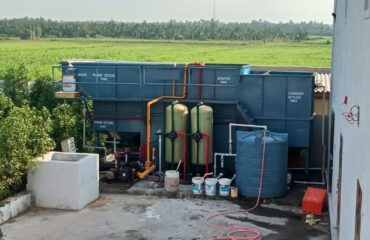Effluent Treatment Plants (ETPs) play a pivotal role in metropolitan areas like Delhi, where industrialization and environmental protection must go hand in hand. This article delves into the significance of Effluent Treatment Plants in Delhi, their contribution to curbing pollution, and their role in fostering a sustainable future.
ETPs Addressing Urban Challenges
Delhi, as the capital city of India, is characterized by its bustling urban landscape and a significant industrial presence. However, this growth has led to the generation of substantial amounts of industrial wastewater, which, if untreated, can harm the environment and public health. ETPs in Delhi are designed to tackle this challenge by treating and purifying wastewater before it is released into water bodies.
Operating Mechanisms
Effluent Treatment Plants in Delhi employ a multi-stage process to effectively purify wastewater. The primary treatment phase involves the physical removal of larger particles, followed by secondary treatment that utilizes microorganisms to break down organic matter. Tertiary treatment further enhances water quality, making it safe for discharge or potential reuse.
Overcoming Complexities
ETPs in Delhi face complexities such as varying pollutant levels and the need for consistent efficiency. Innovative solutions such as advanced filtration techniques and real-time monitoring are being integrated to address these complexities effectively.
Government Involvement and Regulations
The government of Delhi recognizes the critical role of ETPs in preserving the city’s environment. Stringent regulations are in place to ensure that industries adhere to wastewater treatment standards. This collaboration between industries and regulatory bodies underscores the commitment to environmental conservation.
Multifaceted Benefits
Effluent Treatment Plants offer an array of benefits to Delhi’s ecosystem. By preventing water pollution, they safeguard aquatic life and maintain the overall health of water bodies. Moreover, some ETPs enable the recovery of valuable resources from wastewater, promoting sustainability and reducing the environmental impact.
Paving the Way Forward
The future of Effluent Treatment Plants in Delhi is promising. Technological advancements will lead to increased automation and efficiency. The integration of artificial intelligence and data analytics will optimize treatment processes, ensuring higher compliance with environmental norms.
Conclusion
Effluent Treatment Plants in Delhi are not just structures; they are guardians of the city’s environmental well-being. By effectively treating industrial wastewater, these plants contribute significantly to Delhi’s sustainable development journey. The harmony between urban growth and ecological preservation is made possible through the diligent efforts of Effluent Treatment Plants.





